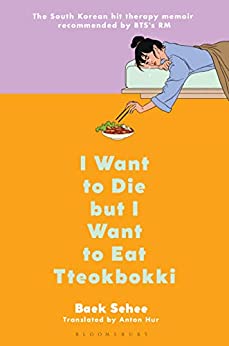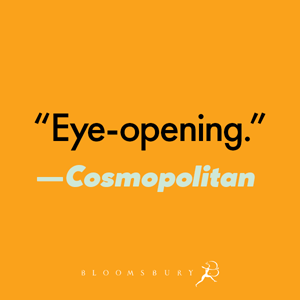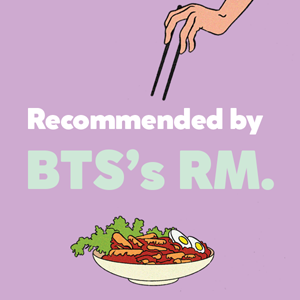
I’m so odd, even to myself.
I wonder about others like me, who seem totally fine on the outside but are rotting on the inside, where the rot is this vague state of being not-fine and not-devastated at the same time. The world tends to focus too much on the very bright or the very dark; many of my own friends find my type of depression baffling. But what’s an ‘acceptable’ form of depression? Is depression itself something that can ever be fully understood? In the end, my hope is for people to read this book and think, I wasn’t the only person who felt like this; or, I see now that people live with this.
-Baek Sehee
According to Mental Health America, 19.86% of adults are experiencing a mental illness; equivalent to nearly 50 million Americans. Nearly 5% are experiencing a severe mental illness, and over 1 in 10 youth in the U.S. are experiencing depression that is severely impairing their ability to function at school or work, at home, with family, or in their social life.1 With the amount of global trauma currently circulating (Covid, racial unrest, civil unrest, war, mass shootings, the erosion of human rights by the highest court, inflation, xenophobia, misogyny… I could go on, but I’m starting to depress myself), I’m curious if there’s anyone out there NOT experiencing some form of mental illness. Celebrities aren’t immune. In 2022 we lost Naomi Judd, Anne Heche, Aaron Carter, Jason David Frank, and recently, Stephen “tWitch” Boss. Despite the prevalence of mental illness in society today, we have yet to normalize talking about our feelings. Baek Sehee is hoping to change that.
Born in 1990, Baek Sehee is a successful young social media director at a publishing house when she begins seeing a psychiatrist about her—what to call it?—depression? For years Sehee has felt persistently low, anxious, endlessly self-doubting, but also highly judgmental of others. Paralyzed by fear and despairingness, Sehee hides her feelings at work and with friends. Exhausted by the effort and overwhelming feelings of inadequacy, Sehee is unable to form deep relationships. She wonders if this is normal; is this just what life is? Eventually she seeks treatment from a therapist and this book is a product of those sessions. Part memoir, part-self help book, I want to die but I want to eat tteokbokki / Baek Sehee ; translated from the Korean by Anton Hur, is full of insightful musings in which those suffering from depression and anxiety might find value. A quick read, the narrative (transcripts of 12 weeks of sessions with her psychiatrist, interspersed with self-reflective micro-essays) was a bit repetitive (just like therapy(!)). Many of the things Sehee worries about (how she’s being judged by her peers, her appearance and whether others find her ugly, and other anxieties) are shared by many, even myself.
Believe it or not, 2022 was extremely difficult for me. For most of the year, I was very unlike myself. I experienced daily panic attacks and my poor family2 had to deal with my angry outbursts. I was able to function, but I was barely getting by. I made lunches every day and we only missed the school bus 15% of the time. I got it together for work and was relatively normal most days. But the effort to perform just the basics was exhausting and I didn’t have energy for anything else. I couldn’t pinpoint a reason for these emotions and I felt so very alone. Why couldn’t I figure it out like everyone else? 3
Over the course of the narrative Sehee’s psychiatrist helps her realize she’s not the only one who feels this way and offers another perspective she hadn’t even considered. The patient/therapist discussions on self-esteem, depression, anxiety, jealousy, hypersensitivity, peer pressure, one’s desire to fit in and be liked, and toxic relationships will likely resonate with many, especially millennials.
Sehee wrote this memoir in an attempt to show others who feel the same way that they’re not alone. I appreciate the author’s vulnerability and openness. Made popular by a recommendation by BTS’s RM, I want to die but I want to eat tteokbokki4 is so short, you’ll finish it in a matter of hours. It’s the kind of book you can reread over and over, as a reminder that the darkness is temporary. Trauma and pain exist in in the shadows; illumination is the first step toward healing. Let’s normalize conversations about our feelings. The silence is killing us.
If you are having thoughts of suicide, call or text 988 to reach the National Suicide Prevention Lifeline or go to https://www.speakingofsuicide.com/resources/ for a list of additional resources.



1. The state of Mental Health in America. Mental Health America. (n.d.). Retrieved December 15, 2022, from https://mhanational.org/issues/state-mental-health-america
2. Brian, you’re a saint. And to my daughters, I am a flawed person. From now on, I promise to apologize when I’m wrong, and when I know better, I will do better. You are all perfectly flawed and it will be my pleasure in life to watch you make mistakes, learn, and grow.
3. Don’t worry about me, I’m fine. I sought help and I’ve got a wonderful support system. I love you, Mom and Dad.
4. Tteokbokki (tok·bo·kee), or simmered rice cake, one of the most popular Korean street foods, is made from small-sized garae-tteok called tteokmyeon or commonly tteokbokki-tteok. Eomuk (fish cakes), boiled eggs, and scallions are some common ingredients paired with tteokbokki in dishes. CM Chicken in Vernon Hills has my current favorite!
Discover more from Cook Memorial Public Library District
Subscribe to get the latest posts sent to your email.
Categories: Books and More
Tags: Books and More
